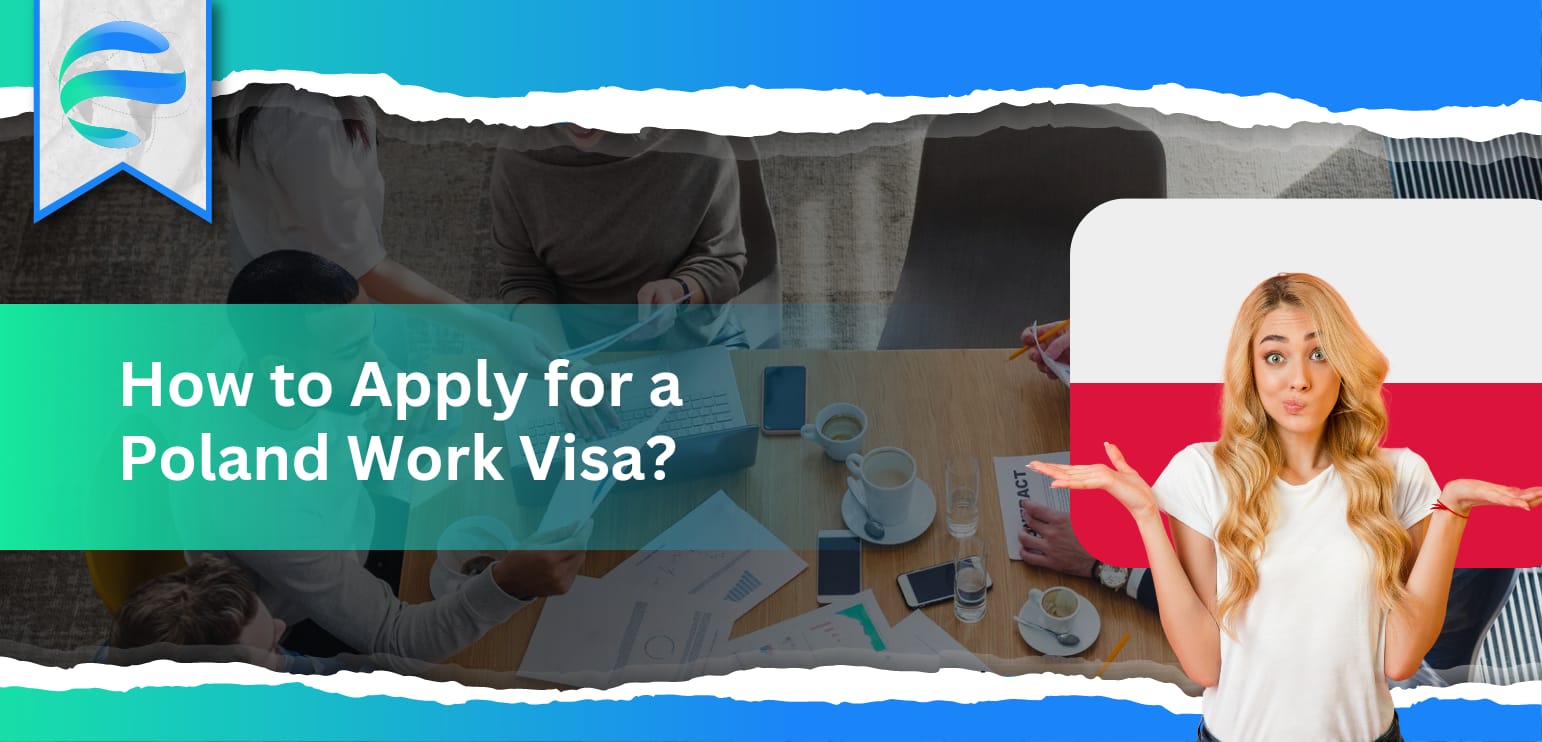
Table of Contents
⟢ How to Apply for a Poland Work Visa
⟢ Types of Poland Work Visas
⟢ Step-by-Step Guide to Applying for a Poland Work Visa
⟢ Key Considerations for Poland Work Visa Applicant
⟢ Final Thoughts
⟢ How to Apply for a Poland Work Visa
Poland has become a popular destination for job seekers from around the world, especially for non-EU citizens. Known for its growing economy, job opportunities, and high quality of life, Poland attracts a diverse workforce looking to build their careers. If you’re considering moving to Poland for work, one of the most important steps is obtaining a Poland Work Visa.
This detailed guide will walk you through everything you need to know about applying for a Poland Work Visa, from eligibility requirements and documentation to the application process and key considerations to ensure a smooth transition.
⟢ Types of Poland Work Visas
Before diving into the application process, it’s crucial to understand that there are different types of work visas in Poland, and the type you need depends on the nature of your employment. The most common types are:
▪ Type A – For individuals working for a Polish employer under a standard employment contract.
▪ Type B – For individuals who plan to work in Poland as a board member or in a managerial role for more than six months within a year.
▪ Type C – For individuals who are delegated to Poland by a foreign employer for more than 30 days to work in a branch or office in Poland.
▪ Type D – For individuals working in Poland on a temporary assignment for a non-Polish company.
▪ Type E – For individuals working in Poland for other types of employment not covered by the categories above.
For most foreign workers looking to move to Poland, Type A is the most common visa category.
⟢ Step-by-Step Guide to Applying for a Poland Work Visa
1. Secure a Job Offer
Before you can apply for a Poland Work Visa, you need a job offer from a Polish employer. Employers in Poland must prove that they were unable to fill the position with a local candidate before they can hire a foreign worker. Once they find a suitable foreign candidate, they will provide you with the necessary job contract and supporting documents required for your visa application.
2. Employer Applies for a Work Permit on Your Behalf
The second step involves your employer applying for a work permit. This is a critical part of the process because foreign workers cannot apply for a Poland Work Visa without a valid work permit. The work permit must be issued by the local Voivodeship (the regional government office in Poland) where your employer is located.
The work permit application requires detailed information about the job, salary, and your employment contract. Once approved, you will receive a work permit letter that allows you to apply for a work visa at a Polish consulate or embassy.
3. Prepare the Required Documents
To successfully apply for a Poland Work Visa, you will need to gather several documents. These documents ensure that you meet the eligibility requirements for entry into Poland and confirm your employment status. Here’s a list of the key documents you’ll need:
1. Completed visa application form – Available online or at the consulate.
2. Valid passport – Your passport should be valid for at least three months beyond the visa expiry date.
3. Work permit – Issued by the Voivodeship office.
4. Job offer letter or employment contract – From the Polish employer.
5. Proof of accommodation – Documentation showing where you’ll stay in Poland.
6. Travel insurance – Health insurance coverage for at least €30,000 (approximately PLN 137,000).
7. Passport-sized photographs – Typically two recent photos adhering to visa photo guidelines.
8. Proof of financial means – Bank statements, payslips, or proof of savings to demonstrate that you can support yourself while in Poland.
9. Proof of visa fee payment – The standard Poland Work Visa fee ranges from €60 to €100, depending on your country of origin.
Make sure to check the specific requirements of the Polish consulate in your country as they may vary.
4. Submit Your Visa Application
Once you’ve gathered all the necessary documents, you can submit your Poland Work Visa application to the nearest Polish embassy or consulate in your country. Many embassies require you to schedule an appointment for the submission of visa applications, so it’s advisable to do this in advance.
During the appointment, you’ll submit your documents, provide biometric data (fingerprints), and attend a short interview. The interviewer may ask questions regarding your employment, the duration of your stay, and your intentions in Poland. Be prepared to explain your employment situation and offer supporting documentation.
5. Attend the Visa Interview (if required)
Some applicants may be required to attend an interview as part of the visa application process. This interview is generally straightforward and focuses on verifying the details of your application, such as your job offer, financial situation, and purpose of your stay.
It’s important to present yourself professionally and provide clear, honest answers to any questions. The interview is not difficult, but it plays a key role in ensuring that your application is complete and accurate.
6. Wait for Processing
After submitting your application, the consulate will review it. Visa processing times vary depending on your country of application, but it generally takes around 10 to 15 business days. However, delays may occur, especially during peak application periods or if additional documentation is requested.
7. Receive Your Visa and Travel to Poland
If your visa application is approved, you will receive a visa sticker in your passport allowing you to travel to Poland and begin working. Your visa will specify the duration of your stay, which is typically tied to the length of your work permit. Ensure you review the details on your visa carefully and comply with any travel or work-related restrictions.
Upon arriving in Poland, you must register your address with the local authorities and obtain a PESEL number (Poland’s national identification number) to access essential services like healthcare and banking.
⟢ Key Considerations for Poland Work Visa Applicants
1. Work Permit Validity and Extensions
A Poland Work Visa is only valid as long as the work permit is active. If you change employers or your employment contract is terminated, your work visa may no longer be valid. Therefore, it’s important to secure a new work permit if your job situation changes.
Additionally, work permits can be renewed if your employment continues beyond the initial visa duration. Make sure to apply for extensions before your visa expires to avoid overstaying, which could lead to penalties or future visa application challenges.
2. Temporary Residence Permit
If you plan to stay in Poland for more than three months, you will also need to apply for a temporary residence permit (Karta Pobytu). This permit allows you to live and work in Poland legally for the duration of your employment. Applying for a temporary residence permit is often done once you are in Poland, and it’s a good idea to initiate the process early to avoid overstaying your visa.
3. Poland Blue Card
If you are a highly skilled professional, you may qualify for the EU Blue Card, which grants work and residency rights in Poland and other EU countries. This option is especially attractive for individuals working in fields like IT, engineering, or healthcare, where high demand for skilled labor exists.
⟢ Final Thoughts
Applying for a Poland Work Visa can seem like a complex process, but with the right preparation and guidance, it’s a manageable task. By securing a job offer, understanding the visa requirements, and following the application steps carefully, you can successfully obtain a Poland Work Visa and start on your new career journey in one of Europe’s most dynamic and growing economies.
With this guide, you should feel confident in your ability to navigate the visa application process and enjoy the professional opportunities that await you in Poland.















